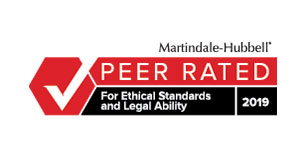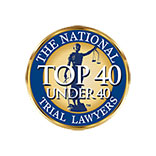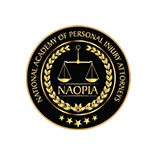Even if you maintain your private property or commercial business with the best of intentions and the utmost care, accidents can happen. Injuries can occur. Unfortunately, another person can hold you, the property owner, responsible for the harm caused.
It’s important to know how to protect yourself in order to avoid a premises liability lawsuit. In this blog, the experienced team of attorneys at Prim Law explains what property owners need to know about premises liability, and what steps they can take to keep their property—and themselves—safe.
If you are involved in a premises liability case in West Virginia, Prim Law can help. Schedule a free initial consultation with one of our attorneys by calling 304-201-2425 or by contacting us online.
About Premises Liability Lawsuits
Premises liability cases are designed to keep other people who visit your property safe. They often have to do with business owners, but can also apply to private property owners who have people visit their spaces. In either case, it’s your responsibility to keep individuals who step foot on your property safe.
Types of Property Entrants
Not all individuals who enter your property, or property entrants, have the same legal rights in a premises liability case. Some state laws specifically focus on the legal status of the property entrant to determine the outcome of a case. Here are the types of legal statuses of property entrants and how a property owner is expected to treat them:
- Invitee. A person invited onto the property. In a business setting, customers are invitees. In a private setting, friends, family, social guests or neighbors are invitees. A property owner owes an invitee a duty of reasonable care to keep their premises safe, since they are expecting people to enter the premises.
- Licensee. Someone who enters the property with implied consent and for their own purpose. Salesmen or delivery workers may be considered licensees. A property owner still owes some duty of reasonable care, but to a lesser degree. The licensee is also responsible for being aware of their surroundings and avoiding hazards.
- Trespasser. A person who enters the property with no legal authorization. A property owner owes no duty of care to trespassers since they have no right to enter the premises.
What kind of incidents can lead to premises liability lawsuits? Slip and fall accidents are common types of cases. Other common cases include work-related accidents or injuries, dog bites, and accidents or injuries in other public spaces or businesses. No matter where they occur, these types of cases are based on one shared detail: whether the property owner took reasonable care to avoid causing harm to other people.
Keeping Your Premises Safe
If a person files a premises liability lawsuit against you, they must prove that you failed to uphold your duty of care required in the situation. They must also prove that harm was caused, and that your negligence contributed to or caused that harm.
That’s why it’s important for property owners to take reasonable care to make their properties safe for others. Doing all you can to keep your property in safe condition can protect you in a lawsuit.
Routinely inspect your property
To prevent injuries and avoid premises liability lawsuits, make it a habit to routinely inspect your property. If you own or rent a space for your business, maintain a schedule for inspecting the space. Make sure your employees know what to monitor and look out for.
For example, if customers often track snow or water into your business when the weather is bad, have a process in place for making your business safe. You and your team should know to mop up puddles as quickly as possible and put up “wet floor” signs to warn customers.
Repair issues immediately
If you discover or even suspect that there is a safety issue on your property, you should take steps to repair the issue as soon as possible.
In a business setting, this may mean taping or flattening ripped carpet to fix tripping hazards or shoveling and laying down road salt to make icy sidewalks safer for customers. In a private setting, this may involve fixing overgrown trees, cutting down broken branches, repairing broken fences, or securing your property with a locked gate.
Warn others of hazards
If you’re unable to repair a safety issue immediately, you must warn others of the hazard so it can be avoided. A common example is putting up a “wet floor” sign near a puddle or recently mopped area.
When you do your part to maintain a safe property, it’s that much harder for another person to file a successful lawsuit against you. You also lower the risk of accidents occurring on your property.
Protect Yourself: Hire a Premises Liability Attorney
Premises liability lawsuits can still occur even when you do all you can to keep your property safe and free of dangerous conditions. Premises liability lawsuits can be difficult to win on your own, due to varying laws by state and a legal process that can be confusing and overwhelming.
If you are involved in a lawsuit in West Virginia, our team of premises liability attorneys at Prim Law can help. We’ll guide you through the legal process, help you build your case, and fight for your legal rights. Call our Hurricane office at 304-201-2425 or contact us online. You can also like and follow Prim Law on Facebook for free legal resources and news updates.



